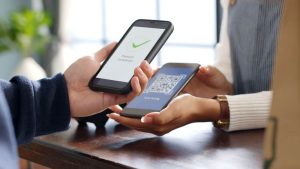 Written by Cooper Melvin, J.D., CPA
Written by Cooper Melvin, J.D., CPA
Form 1099-K was first introduced in the 2011 calendar year. The 2011 form, titled Merchant Card and Third-Party Payments, was required to be filed by Third-Party Settlement Organizations (TPSOs) only if the gross amount of reportable transactions exceeded $20,000 and the total number of such transactions exceeded 200.
In an effort to reduce the tax gap caused by non-filers or the underreporting of income by those who do file, the American Rescue Plan Act of 2021 lowered the threshold for required reporting on Form 1099-K. Beginning in 2022, reportable transactions of $600 or more, regardless of the number of transactions, will trigger a Form 1099-K requirement from payment platforms like PayPal, eBay and Venmo if the payment was received in return for goods or services (business income). If you receive a Form 1099-K, the IRS expects to see that income reported on your tax return, likely under Schedule C Business Income or Schedule E Rental Income. Therefore, it is important to be able to differentiate payments that are income from payments made when friends or family reimburse you for a bar tab or grocery run, for example. Reimbursements made by friends and family are not considered taxable income. If you receive a Form 1099-K triggered by these reimbursements and do not seek assistance, you will likely be assessed a self-employment tax on top of your regular income tax which is an additional 15.3% tax.
Fortunately, services like Venmo and PayPal have a friends and family option when you finalize payments. If you click that button when sending or receiving a payment, the amount should not count towards the $600 threshold. However, there is a chance that Venmo or PayPal, or any other payment platform, will send you a Form 1099-K erroneously, especially if someone forgets to check the friends and family box when making payments.
In these cases, there are two options to correct the errors. The recommended option is to call the payor or issuer of the Form 1099-K, such as Venmo support services, and ask them to send the IRS a corrected Form 1099-K showing only the amount that you received for goods and services. If you receive payments for both goods and services and from friends and family, it is important to track the amounts of each on a spreadsheet so that you can easily spot errors on your Form 1099-K.
Alternatively, if you are unable to arrange for a corrected Form 1099-K, you can attach the Form 1099-K to your return with a note to the IRS stating which amounts were for payments from friends and family and, therefore, should not be considered taxable income. However, given the fact that the IRS will expect to see this income on your return, this option could fail to prevent an audit or notice. Disclosure in this manner should establish taxpayer good faith and make a favorable resolution more likely.
If all or some of your receipts are for business, please note that you must report the Form 1099-K amount on Schedules C or E of your tax return. However, you can include qualifying business expenses on those schedules as well to offset that income should you have any. If you have any questions or erroneously receive a Form 1099-K, please contact a BMSS professional for assistance at (833) CPA-BMSS or visit our website for contact information.
